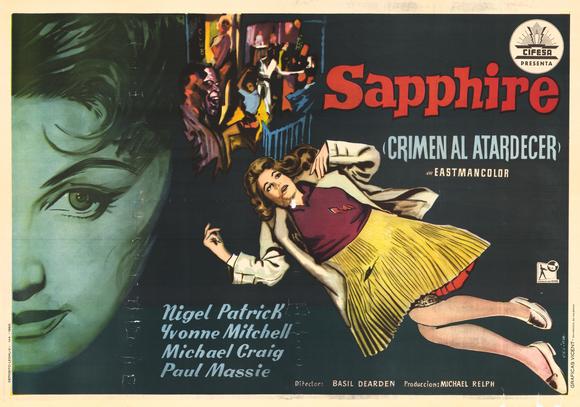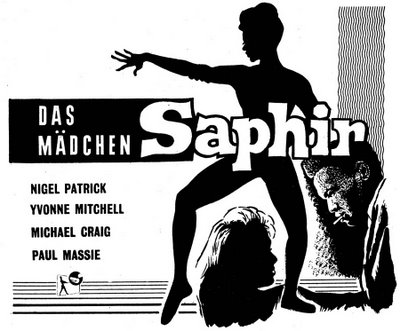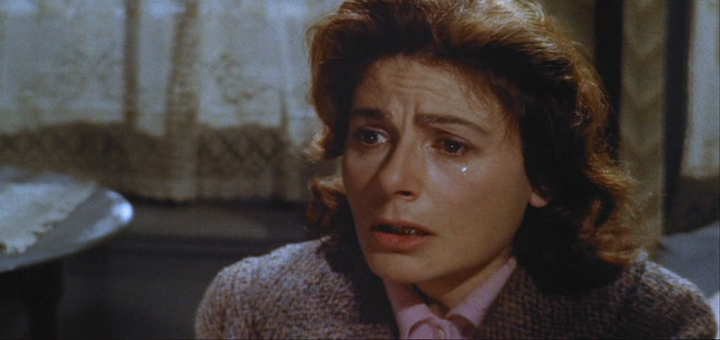A crime drama, a murder mystery, a treatise on ethnic tensions, class and “passing” in 1950s London, Sapphire is also a clever, well acted whodunit: to British audiences what the same years Imitation of Life was to Americans; an engaging film elevated by its presentation of a seldom discussed topic: “passing,” and bolstered by the rare presentation of the challenges faced by blacks trying to negotiate life in a predominantly white society.

Sapphire is introduced to us as a “white” stabbed-multiple-times-through-the-heart corpse: a conservatively dressed discarded body whose undergarments, “flashy,” lacy, red-colored silky things, seem incongruous with her carefully presented, pointedly drab outer clothing. Was this young woman named Sapphire Robbins living two different lives? That’s up to detectives Hazzard (Nigel Patrick) and Phillip (Michael Craig) to discover. Along the way they also discover other things.

In the role of Sapphire’s music student boyfriend David, Paul Massie does a fine job of being both a likely and unlikely suspect. So does the rest of his racist and dysfunctional family: sister Mildred (Yvonne Mitchell), a loveless shopkeeper saddled with a set of twins and challenged by a husband who prefers being away in the Navy; mother Anna (Olga Lindo), a doting homemaker who sees things clearly and calls them out honestly; and father Ted (Bernard Miles), a sign painter who is fiercely loyal to his dubious “why did you have to get involved with a colored girl” son.

The other people that populated Sapphire’s life are equally suspicious. There’s her “black as a pot” brother, the erudite and seemingly compassionate Dr. Robbins (Earl Cameron), her former dance partner, handsome but brutish Johnny (Harry Baird), a former lover—a black baron—Paul (Gordon Heath) a man who broke with her when he learned that she was “part white,” and a string of unnamed but disgruntled former friends and associates: a female romantic rival; “I hated that high yellow doll for stealing my man away”; a black classmate; “Yes, she dropped me. I am rather conspicuous you know”; and a knowing “Whites Only” landlady, “…you can always tell; they laugh too hard; they play the gramophone too loud.”
Captivating, deftly directed by Basil Dearden and featuring a surprise twist ending, Sapphire is necessary viewing (even if the film does promote stereotypes: Sapphire loves to dance and prefers hanging out at back-alley clubs filled with pimps, prostitutes and drug dealers.) An off the beaten path peak at one woman’s unconventional life—and the effect it had on others.






